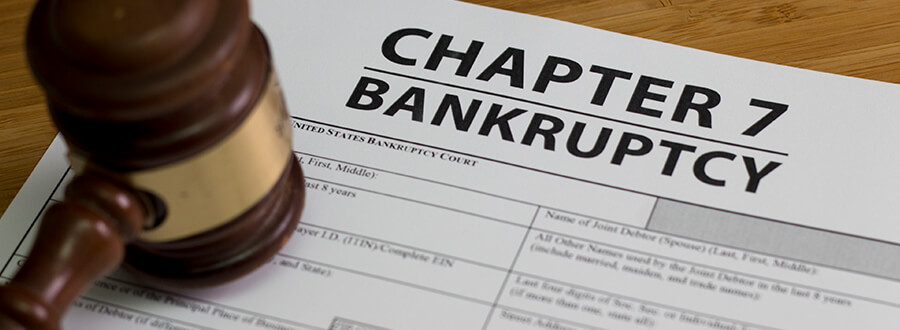Key Points
- A Chapter 7 Bankruptcy, otherwise known as a liquidation bankruptcy, can result in the complete discharge of unsecured debts, including credit card debt and medical bills.
- You must meet the certain criteria to qualify for a Chapter 7 Bankruptcy by passing an income means test, which considers both your monthly income and expenses.
- Not all debts go away with a Chapter 7 bankruptcy.
- The Bankruptcy trustee can force the sale of certain assets such as your home or automobile.
- A Chapter bankruptcy will remain on your credit repot for 10 years, making it difficult to obtain new credit.
- Even after the reporting of the bankruptcy drops off of your credit report, you may be required to voluntarily report you have filed bankruptcy in the past when applying for a job, mortgage or volunteering for military service.

A Chapter 7 bankruptcy was created to assist consumers and businesses in financial distress and a way to get a fresh start financially by discharging most unsecured debts. Changes made to bankruptcy laws in 2005 placed limits on Chapter 7 filings, requiring some consumers to repay at least some debts before receiving a discharge through a Chapter 13 if they are not able to qualify under the Chapter 7 guidelines. These changes require an income means test that disqualifies many consumers from getting a true fresh start.
Qualifying for Chapter 7 Bankruptcy
Chapter 7 bankruptcy helps individuals, partnerships, and sole proprietors that need relief from debt. The goal is to provide a fresh start by liquidating non-exempt assets. However, in a chapter 7 bankruptcy, the court appointed trustee can force the sale of your home or vehicle in some cases to raise capital to pay your creditors.
Federal bankruptcy exemptions allow you to keep up to $25,150 of equity in your home and a car valued at no more than $4,000. You may also keep pensions and retirement accounts. Nolo provides a comprehensive list of federal bankruptcy exemptions. State exemptions vary, so be sure to consult with a license bankruptcy attorney in your state to understand these exemptions before you file.
When filing a bankruptcy petition, you must include a schedule of assets and liabilities, your current monthly income and expenses, a statement of financial affairs, and a schedule of active contracts, unexpired leases, and tax returns.
All filers must also present a certificate of completion for bankruptcy counseling through an approved agency, as well as a debt repayment plan and verification of their income.
The Cost of Filing Chapter 7 Bankruptcy
Filing fees, administrative fees, and bankruptcy trustee surcharges average $335, while attorney fees range from $781 to $1,530 depending on the state in which you file. Consumers with multiple sources of income, a lot of credit accounts, or non-dischargeable debts like student loans face above-average fees for bankruptcy.
Should You File Chapter 7 Bankruptcy?
Filing a chapter 7 bankruptcy is the most attractive option because the courts will discharge all qualified unsecured debts without requiring repayment. However, you must first qualify to file for under Chapter 7, and if you do meet the qualifications, the court could sell non-exempt assets to repay your creditors.
A Bankruptcy Means Test has two components. The first is measuring your income against the median income in your state. Median incomes range from a low of $43,000 in Mississippi to a high of $86,651 in Massachusetts. A total household income below the median will qualify you to file Chapter 7. When income is above the median, the means test reviews all your debt in relation to income to determine if you qualify for a Chapter 7. If you do not meet the means test, the petition will convert to Chapter 13, which requires you to repay a portion of the debt over five years.
Debts Which Can Be Discharged in Chapter 7 Bankruptcy
Chapter 7 will typically discharge the following debts:
- Personal loans
- Credit card debts
- Delinquent medical bills
- Payday loans
- Other unsecured debts
- Secured debts, which often include a vehicle or home loan you can no longer keep current
Debts That Are Not Discharged in Chapter 7 Bankruptcy
There are 19 categories of debts that typically do not qualify for a discharge. A few of the most common include:
- Student loan debt
- Child or spousal support payments
- Alimony
- Back taxes
- Governmental fines
- Judgments for willful or malicious injury to a person or property
- Benefit Overpayments
- Personal Injury caused because of a DWI.
- Condominium or cooperative housing fees
- Debts owed to tax-advantaged retirement plans
Long-term Impact of a Chapter 7 Bankruptcy Filing
Filing bankruptcy has long term consequences. The negative impact of Bankruptcy remains on your credit for up to ten years. You must always attest to filing bankruptcy in future applications, and it could impact your ability to find employment, rent an apartment, or qualify for utility services.
Options Outside of Bankruptcy
If you do not qualify for Chapter 7, you might find better results seeking alternatives such a debt settlement to pay off debts for less than you owe without the need to file bankruptcy. If you are concerned about losing your house or car in Bankruptcy or want to avoid the negative of stain that will last for eternity, consider seeking out the services of a qualified attorney who specializes in Debt Settlement.
